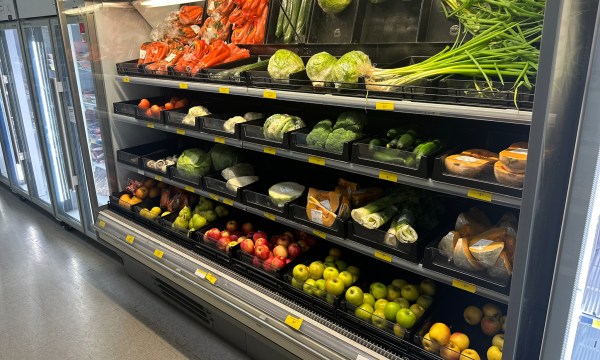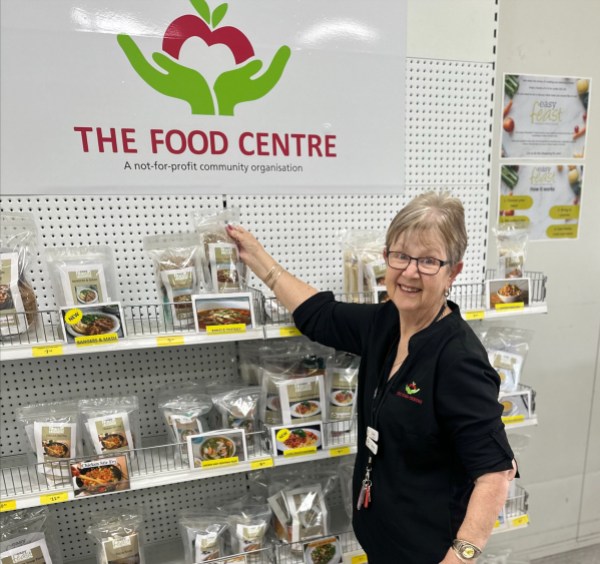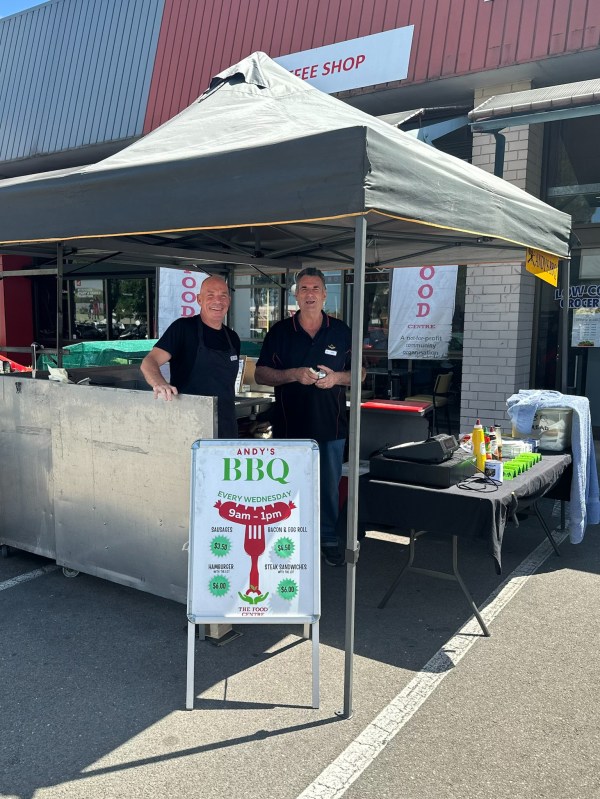Could new ‘social supermarkets’ support South Aussies living with food insecurity?
Social supermarkets try to curb the cost of living
Cassie Bates* is one of many South Australians who have gone hungry.
When Cassie was younger, she lived with her single mum in the outer suburbs of Adelaide.
“We didn’t really have heaps of food,” she told CityMag over coffee. “I’d either have lunch and no dinner or no lunch and just dinner just on my own.
“Mum would mooch food off of work and bring it home for me to eat but I’d have to wait for it.”
Now living on her own, Cassie struggles with her mental health and isn’t able to work full-time. She feels stuck working casual retail with no guaranteed hours. With the cost of living pressures rising, she has to be creative with how she makes her meals last.
“I buy noodles in bulk and throw in frozen veggies. On the odd chance that I do order take-out, I’ll stretch one meal out over three days to make it worth it,” she says. “[I] love a good chip sandwich. Buy like hot chips for $10 from the local fish and chip shop and stretch that out over like four days with chip sandwiches.”
Although Cassie says she wouldn’t use one, she’s the perfect customer for the innovative model of social supermarkets being studied by Researchers from Flinders University in collaboration with Wellbeing SA and the Department of Human Services.
While social supermarkets are not a new concept – they’ve been running in several European countries for decades – the model enhances access to affordable food within a retail-style setting while providing working opportunities to those who need it most.

The reasonably priced veggie aisle…how often have we seen one of those lately?
Dr. Tahna Pettman from the Centre for Social Impact at Flinders University, one of the researchers at the model in Australia, says nearly one in six South Australians are running out of food and can’t afford to buy more.
“For everyone, budgets are tight at the moment. Often food is the most elastic part of the budget,” she says. “You have to pay your utilities bill, but you can skip a meal.”
“People may not be in chronic food insecurity or food poverty, but perhaps are needing some support with lower-cost groceries.”
Tahna says that “we can all connect around food” so a supermarket that helps people rather than shareholders is a concept the public can back.
“Supporting these sorts of models, whether they’re in food relief settings or in community centres or other social enterprises, I think it’s great if the community can get behind them and become aware of what they might offer for people on low incomes or [who are] socially excluded,” she says.

Grinning about the good they’re able to do through the Food Centre
While social supermarkets isn’t a term used widely in South Australia, The Food Centre has been fulfilling this role since it started operating in 1990 and opens its Gepps Cross doors to shoppers each weekday.
CEO of The Food Centre, James Chapman, says social supermarkets work.
Over the past year and a half, The Food Centre has organised morning and afternoon social supermarket pop-ups at various locations across Greater Adelaide.
“They’re quite successful, we usually get a turn out between 25 and 30 people over a three-hour period,” James says.
James says the pandemic masked the numbers of people using the Food Centre’s services, but that once Covid-support payments stopped in March 2022, they saw “a very significant spike immediately in the demand”.
Tahna and James both say that as well as lower-cost groceries, social supermarkets also provide social support opportunities and volunteer opportunities.

Andy knows Aussies can’t pass up a snag.
James says volunteers range from retirees, those making a social commitment through the Work for the Dole programme or students.
“There are volunteers who genuinely are here to volunteer…They want to give back to their community,” he says.
While open to volunteering, Cassie isn’t sure she’d use a social supermarket.
“I think it’s a good place for like-minded people to sort of meet others and know that they’re not on their own struggling with this kind of thing,” she says. “Even though I struggle with getting stuff, I feel like there’s other people that are always struggling worse than I am. So I would rather they get the help when I can still manage with how I am now.”
But Cassie would like to see improved food security and suggested more accessible community gardens or organisations donating food that otherwise would have gone to waste to these supermarkets.
“There was a time where my friend went dumpster diving, and we made soup,” she says of the practice that can be considered theft or trespassing if the bins are on private property.
“Instead of being considered theft, companies should give food to these social supermarkets and people can get stuff that would have otherwise gone in the bin.”
*name changed for privacy.




